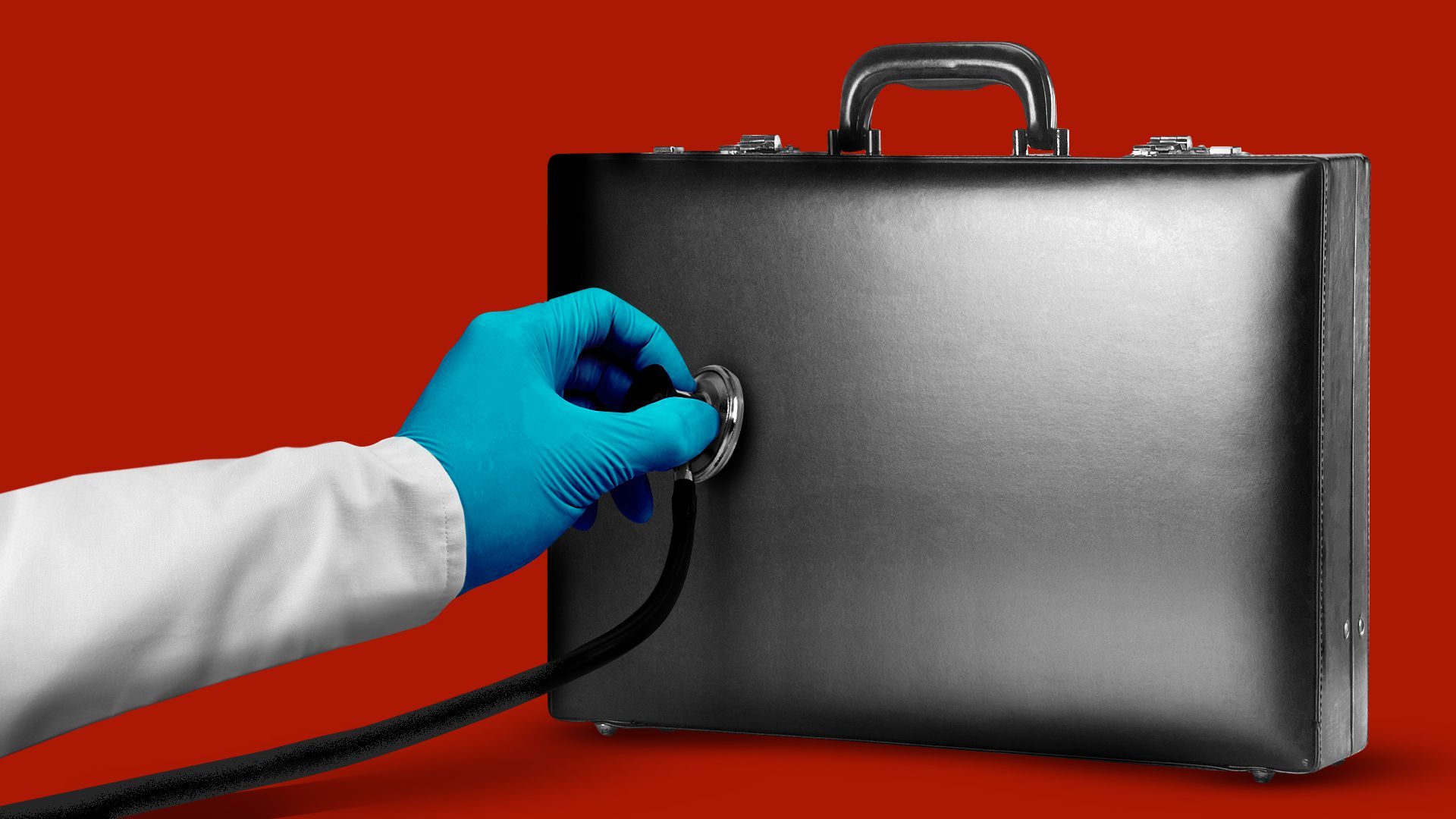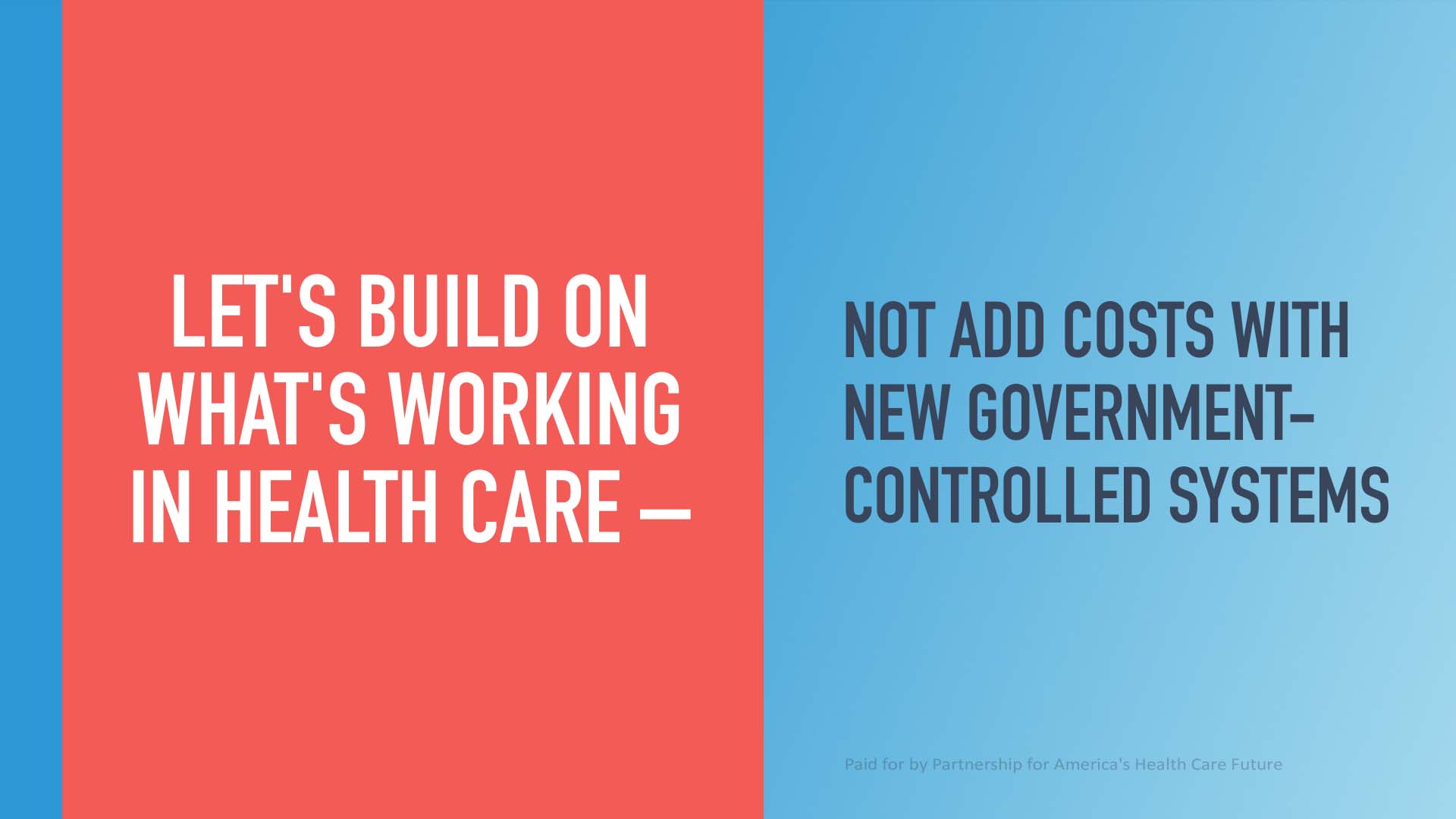| |
| |
| |
| Presented By Partnership for America's Health Care Future |
| |
| Axios Vitals |
| By Tina Reed ·Dec 13, 2021 |
| Welcome back from the weekend, Vitals readers. Today's newsletter is 908 words or a 3-minute read. On tap this week: The Senate HELP Committee will hold a hearing Tuesday to consider Robert Califf's nomination to lead the FDA. |
| |
| |
| 1 big thing: Omicron numbers drive alarm |
 |
|
| Illustration: Aïda Amer/Axios |
| |
| The U.K. has become the latest hotspot for the Omicron variant, raising its official coronavirus alert level Sunday, Axios' Yacob Reyes reports. State of play: Officials in the U.K. report Omicron cases were doubling every second day and confirmed their first hospitalizations tied to the variant, the Guardian reported. - Prime Minister Boris Johnson called for individuals older than 18 to get boosters, the BBC wrote.
What we know: Early findings indicate Omicron is more transmissible and may evade some vaccine-induced immunity. - Preliminary data from South Africa earlier this month indicate patients infected with the Omicron variant may have milder infections. But it is still too early to say that with certainty, officials said.
Between the lines: The U.K. may offer a preview of what's to come in the U.S. - So far, Omicron has been detected in 25 states in the U.S., with the bulk of the cases in fully vaccinated people with mild symptoms.
- While we can't directly transfer one country's experience to another, "the U.K. does look a lot like the U.S. in terms of vaccine-induced immunity," Scott Gottlieb, former FDA commissioner and current Pfizer board member, said on CBS' "Face the Nation."
- As has been widely reported, the U.S. health care system has already been overtaxed, and hospitals in certain regions, such as the Midwest and Northeast, are facing new demand from surges tied to the Delta variant.
The bottom line: "Even if Omicron ends up being mild, it could well be the straw that breaks our back," Megan Ranney and Joseph Sakran, an emergency physician and trauma surgeon, recently wrote in Time magazine. Go deeper: The winter Omicron wave is coming — quickly |
    |
| |
| |
| 2. Millions of seniors vulnerable to Omicron |
 Data: CDC; Note: From Aug. 29 to Sept. 26, 2021, facilities reporting 100% fully vaccinated individuals were excluded; Data for the week ending Dec. 5 is still accruing, with 10,477 nursing homes reporting as of Dec. 12. All other data points had more than 14,000 homes reporting; Chart: Thomas Oide/Axios Only about half of nursing home residents have received a COVID booster shot — an ominous statistic as Omicron rapidly spreads around the world, Axios' Caitlin Owens writes. Why it matters: Experts recommended booster shots — especially for this vulnerable population — even before the emergence of Omicron. But preliminary data shows that two doses of Pfizer's vaccine aren't very effective against the new variant, although three doses are. The big picture: Less than half of eligible adults 65 and older — 44% — had received a booster shot as of shortly before Thanksgiving, according to CDC data released Friday. - There was wide variation by race and ethnicity, with white Americans more likely to have gotten a booster than most people of color.
- There was also a significant variability based on vaccine type. Eligible seniors who originally received J&J's one-shot vaccine were much less likely to have gotten a booster shot than Pfizer and Moderna recipients.
- Only 17% of eligible J&J recipients had been boosted as of Nov. 19.
The bottom line: Millions of unboosted seniors, even those who are fully vaccinated, are vulnerable to breakthrough infections as Omicron cases spike. Share this story. |
    |
| |
| |
| 3. Abortion pill crackdown |
 Data: Guttmacher Institute, Axios research. Map: Jacque Schrag/Axios As the U.S. Supreme Court signals a potential end to Roe v. Wade, abortion rights activists are heralding abortion pills as a potential option in places where clinics may have to close. - But several red states are already cracking down on the pills, Axios' Oriana Gonzalez, Ashley Gold and Jacque Schrag report.
The big picture: Almost half of U.S. states have banned or tightly restricted abortion pills — two medicines named mifepristone and misoprostol — and more could soon follow suit. What they're saying: "I think pretty much any state that is on the conservative side might expect to see similar legislation in 2022," Elizabeth Nash, state policy expert at the Guttmacher Institute, told Axios. Read the rest. |
    |
| |
| |
| A message from Partnership for America's Health Care Future |
| Let's build on what's working in health care |
| |
 |
| |
| American families deserve access to affordable, high-quality health coverage and care to help them get healthy and stay healthy. Let's build on what's working in health care — not start over with unaffordable, new government-controlled health insurance systems. Learn more. |
| |
| |
| 4. Quote de jour: SNL features "Fauci" |
 |
|
| Screenshot: "Saturday Night Live" |
| |
| "The important thing is to get vaccinated. And if you're vaccinated, get boosted. And if you're boosted? Maybe you want a little top-off? Maybe you want a little splash? I don't know..." — Kate McKinnon, managing to capture the current state of Omicron-induced vaccination questions as she impersonated NIAID director Anthony Fauci on "Saturday Night Live" over the weekend. |
    |
| |
| |
| 5. The labor shortage is a health problem |
 |
|
| Illustration: Aïda Amer/Axios |
| |
| America's unemployment is being driven in large part by physical and mental health concerns, Axios' Felix Salmon writes. The big picture: McKinsey's American Opportunity Survey, shared exclusively with Axios, surveyed 5,000 Americans and found that 37% of them had been diagnosed with mental health issues, or sought treatment for their mental health. Between the lines: The survey found that 16% of respondents were unemployed, with 9% looking for work and 7% not looking. Those numbers are much higher than the official unemployment rate of 4.2%. - Health was by far the main reason they said they weren't working. 15% said it was because of their mental health, and 30% said it was because of their physical health.
- Among unemployed people who are not looking for work, the numbers are even higher: 20% say it's because of their mental health, and 45% say it's because of their physical health.
- Where it stands: Health-related unemployment is on an upward trajectory, compared to the last time the survey was run, in March.
Read the rest. |
    |
| |
| |
| 6. While you were weekending |
 |
|
| Illustration: Aïda Amer/Axios |
| |
- As a massive tornado struck the Monette Manor nursing home Friday, nurses stood over elderly residents in an attempt to act as human shields, the Memphis Commerical Appeal reported.
- Delta surges and the emergence of the Omicron variant are causing workplaces to reassess plans — again — to bring employees back to the workplace, the Wall Street Journal reports.
- Hospitalizations are now a better indicator of COVID's impact, experts Monica Gandhi and Leslie Bienen argue in the New York Times.
- President Biden signed legislation to delay Medicare payment cuts, RevCycleIntelligence writes.
|
    |
| |
| |
| A message from Partnership for America's Health Care Future |
| Let's build on what's working in health care |
| |
 |
| |
| American families deserve access to affordable, high-quality health coverage and care to help them get healthy and stay healthy. Let's build on what's working in health care — not start over with unaffordable, new government-controlled health insurance systems. Learn more. |
| |
| 📫 Did someone forward this email to you? Here's how to subscribe. |
 | Bring the strength of Smart Brevity® to your team — more effective communications, powered by Axios HQ. | | |










No comments:
Post a Comment